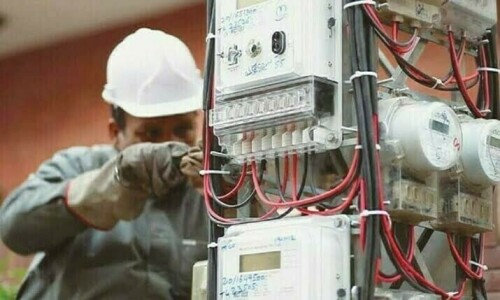ISLAMABAD: In an interesting observation, National Electric Power Regulatory Authority (Nepra) Chairman Waseem Mukhtar on Wednesday asked the power companies to downplay Rs1.89 per unit additional quarterly tariff adjustments on account of the fourth quarter (April-June) of FY24 and instead project only 96 paise per unit increase.
During a public hearing on fuel cost adjustment (FCA) for July, the Nepra chief also celebrated about 31 paise per unit drop in FCA at the start of the new fiscal year and claimed part credit for increasing base tariff with effect from July 1 after also including the impact of transmission constraints in yearly reference tariffs and also appreciated the Central Power Purchasing Agency (CPPA) for monetising the transmission line weakness in tariff.
As a queue, Nepra announced in a statement that QTA sought by power companies for the 4th quarter of last year would work out at Rs1.89 per unit to generate Rs46.99bn if recovered in September, October and November bills. However, an earlier QTA of 93 paise per unit was expiring, leaving an additional impact on the fourth quarter at 96 paise per unit for September.
Nepra celebrates a meagre reduction of 31 paise for July
Additionally, he said the positive FCA for June was Rs2.56 and charged to consumers in August. With a negative 31 paise FCA for July, the September bills would be around Rs1.91 per unit lower than August, after taking into account the positive QTA as well. “These things need to be projected”, he said.
Strangely, neither the Nepra chairman nor the statement discussed additional impact in October and November. Despite questions, all-inclusive effective tariff comparisons for respective months or last year and current were not disclosed.
This is strange, given that electricity costs under the base tariff determined by Nepra have already been charged to consumers from April to June. Through QTA, Nepra was now allowing another Rs46.99 billion burden to consumers in the upcoming quarter.
However, his colleague and Nepra member from Khyber Pakhtunkhwa, Anwar Maqsood Khan, lamented that these transmission constraints had not been removed during his four-year tenure despite allowances given for rectification.
Nepra member from Sindh Rafique A Shaikh also noted that because of these transmission constraints, expensive power plants were operated. He said questions should be asked as to what was the cost required for rectification of these constraints and what the cost of those expensive power plants that was transferred to the consumers.
“We should know answers to these questions. Responsibility should be fixed for the failure”, he said.
Mr Shaikh said the consumers were in touch conditions and the amount of their electricity bills had surpassed house rents. “This should be a matter of shame for all of us”, he said.
Published in Dawn, August 29th, 2024
















































